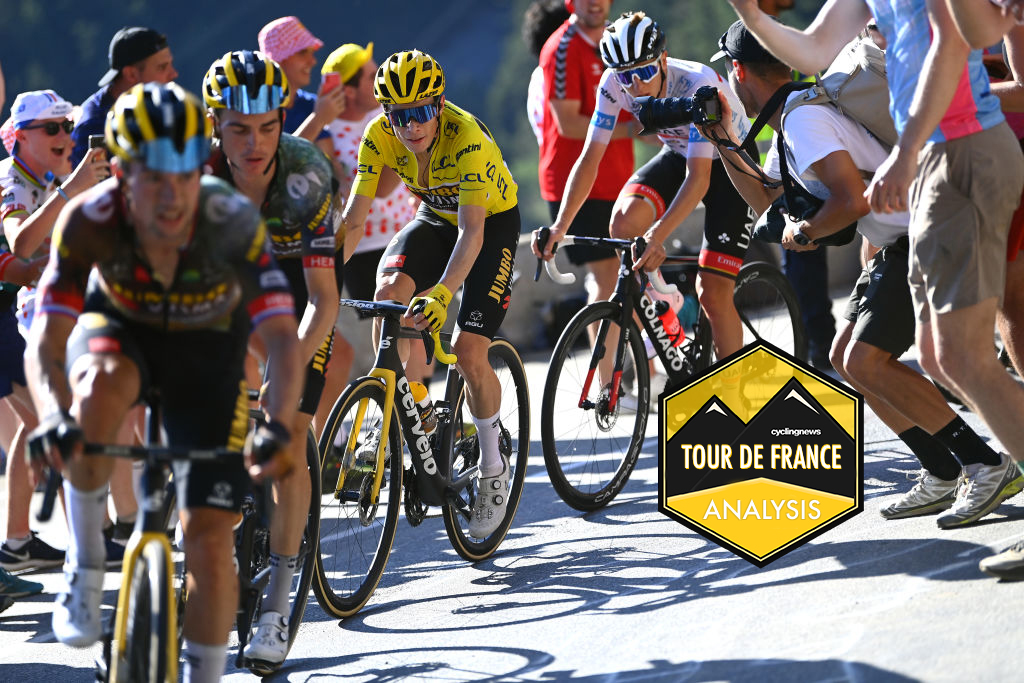“To allow my injuries to heal properly, we have decided that I won’t start today.”
The innocuous tweet from Jumbo-Visma before the start of stage 15 in Mende didn’t seem to say much about the abandon of Primož Roglič, but like all PR statements it’s more what it didn’t say that will be discussed in the coming days.
The elephant in the room is Roglič’s intended participation in the Vuelta a España, which starts in just under four weeks. He returns as defending champion. Somehow it feels like that has taken precedence over whatever role he could have played in defending Jonas Vingegaard’s lead. I’m left wondering who the “we” are and why they think losing a rider of Roglič’s class is a good decision.
It’s not like he was utterly terrible on the day preceding the announcement – on stage 14 he had been part of the GC group that led into the third category climb before the blast up the Montée Jalabert. Though he has been struggling on stages which had a climb near the start, if he was in a really bad way after his crash on stage 5, he would never have come back at all. So his retirement strikes me as a bizarre choice. And that’s exactly what it is.
When you see riders like Caleb Ewan struggling to make the time cut each day you can see what it means to participate in the Tour de France. It’s the most important bike race, period. You don’t just decide to stop unless you can’t physically continue.
In the past, sprinters like Mario Cipollini would abandon before the mountains and rightly receive criticism for doing so – but Primož Roglič can climb despite his current injury. We saw that on the ascent of the Galibier when he was instrumental in the attacks that resulted in the dismantling of Tadej Pogačar later that day.
People talk of respecting the Tour and expect that it’s a rider’s duty to finish. That’s why you see the gruppetto in survival mode – you don’t stop unless you really can’t continue. If you are eliminated – as Michael Mørkøv was after riding 202 kilometres in the heat alone – then so be it, but you go down fighting. If aren’t capable of making the time limit and there are others with you then you tell them to go on so that they can continue. It hurts to not reach Paris – that’s proven by the riders in tears handing over their race numbers when they stop on the roadside.
When you’re part of the yellow jersey team, the duty to continue is amplified. It doesn’t matter if you can only pull on the front of the peloton for ten kilometres or for…
Click Here to Read the Full Original Article at CyclingNews RSS Feed…

